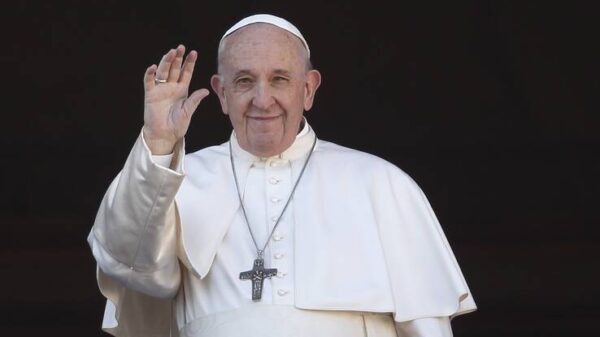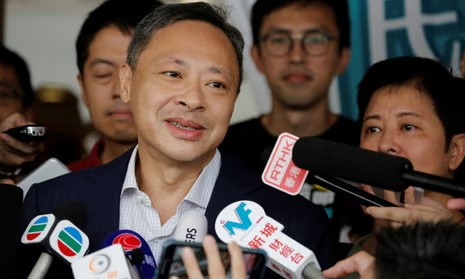Hong Kong Pro-Democracy Leaders Sentenced for Organizing Primaries
In a significant development highlighting Hong Kong’s intensifying political climate, 45 pro-democracy activists, including prominent figures Benny Tai and Joshua Wong, have been convicted of subversion. The charges stem from their role in organizing the 2020 pro-democracy primaries, an event aimed at coordinating opposition candidates for legislative elections. Sentences handed down range up to ten years, underscoring the government’s crackdown on political dissent under the national security law.
The 2020 Pro-Democracy Primaries and Their Aftermath
The 2020 primaries were designed to consolidate pro-democracy support in Hong Kong’s legislative elections, an effort seen as a direct challenge to the city’s Beijing-aligned administration. More than 600,000 residents participated in the event, reflecting widespread public support for democratic ideals. However, authorities deemed the primaries a subversive act, alleging they aimed to disrupt government operations.
Following the event, dozens of participants and organizers were arrested under the national security law, which Beijing imposed in mid-2020 to curb dissent after widespread protests.
Convictions Under the National Security Law
The activists were charged with “conspiring to subvert state power,” a violation under the sweeping national security law. The court ruled that the primaries were part of a coordinated plan to paralyze the Hong Kong government by securing a legislative majority that could block key legislation.
Benny Tai, a legal scholar and co-organizer of the primaries, received one of the harshest sentences. Joshua Wong, a globally recognized activist, also faces significant prison time. Both have been vocal advocates for greater democratic freedoms in Hong Kong, making them high-profile targets of the government’s enforcement measures.
International Reactions and Criticism
The sentencing has drawn sharp criticism from the international community. Western governments, including the United States and the United Kingdom, have condemned the convictions, calling them an erosion of freedoms guaranteed under the “one country, two systems” framework. Human rights organizations have also expressed concern, labeling the sentences as politically motivated and a grave threat to democracy in Hong Kong.
China, however, has defended the legal actions, insisting that the national security law is necessary to restore stability and ensure the city’s prosperity.
Impact on Hong Kong’s Political Landscape
The convictions mark a turning point in Hong Kong’s political landscape, effectively silencing some of the city’s most prominent voices for democracy. The sentencing of Tai, Wong, and other activists sends a strong message to opposition groups, deterring future challenges to the government.
Observers note that this crackdown has created a chilling effect on political participation, with many opposition figures either imprisoned, exiled, or disbanded. Critics argue that this shift undermines the pluralistic society that Hong Kong once prided itself on.
Concerns Over Freedoms and the Rule of Law
The heavy-handed approach to dissent has raised questions about the future of civil liberties in Hong Kong. Activists, journalists, and ordinary citizens have expressed fears of increased self-censorship as the boundaries of free expression narrow. The use of the national security law to prosecute political figures highlights its broad application, sparking debates about its compatibility with international human rights standards.
Legal experts warn that the law’s ambiguous language could be used to target a wide range of activities, further eroding the city’s judicial independence.
The Road Ahead for Hong Kong
The sentencing of pro-democracy leaders underscores the broader shift in Hong Kong’s governance under Beijing’s influence. While the government claims these measures are necessary for stability, critics argue they stifle the freedoms that made Hong Kong a global hub of innovation and commerce.
As international pressure mounts, it remains to be seen how the Hong Kong government and Beijing will navigate growing scrutiny. For the city’s residents, the convictions are a sobering reminder of the cost of dissent and the challenges of preserving democratic ideals in a changing political environment.
Conclusion: A Landmark Case with Lasting Implications
The sentencing of Benny Tai, Joshua Wong, and 43 others for organizing Hong Kong’s 2020 pro-democracy primaries marks a defining moment in the city’s political history. The case highlights the ongoing struggle between democratic aspirations and state control, with profound implications for Hong Kong’s future. As the world watches, the convictions serve as both a cautionary tale and a call to action for those committed to defending democratic freedoms.




































